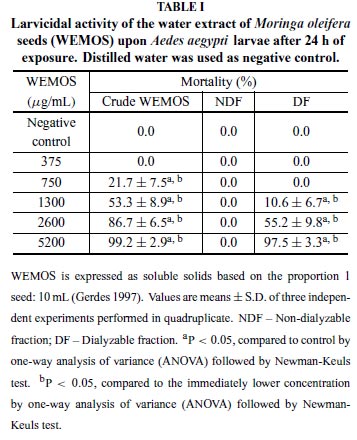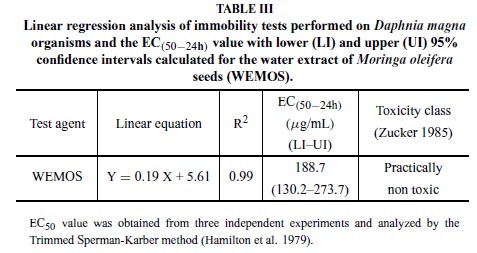In this work, biological effects of the water extract of Moringa oleifera seeds (WEMOS) were assessed on eggs and 3rd instar larvae of Aedes aegypti and on its toxicity upon laboratory animals (Daphnia magna, mice and rats). Crude WEMOS showed a LC50 value of 1260µg/mL, causing 99.2 ± 2.9% larvae mortality within 24 h at 5200µg/mL, though this larvicidal activity has been lost completely at 80ºC/10 min. WEMOS did not demonstrate capacity to prevent egg hatching. After extensive dialyses of the crude WEMOS into watersoluble dialyzable (DF) and nondyalizable (NDF) fractions, only DF maintained its efficacy to kill larvae. Acute toxicity evaluations on daphnids (EC50 of 188.7µg/mL) and mice (LD50 of 446.5 mg/kg body weight) pointed out to low toxicity. Despite the thymus hypertrophy, WEMOS revealed to be harmless in orally and subacutelytreated rats. In conclusion, WEMOS has thermostable bioactive compounds against Ae. aegypti larvae with apparent molecular mass lower than 12 kDa and moderately toxic potential.
Aedes aegypti; Daphnia magna; larvicidal activity; Moringa oleifera seeds; toxicity





